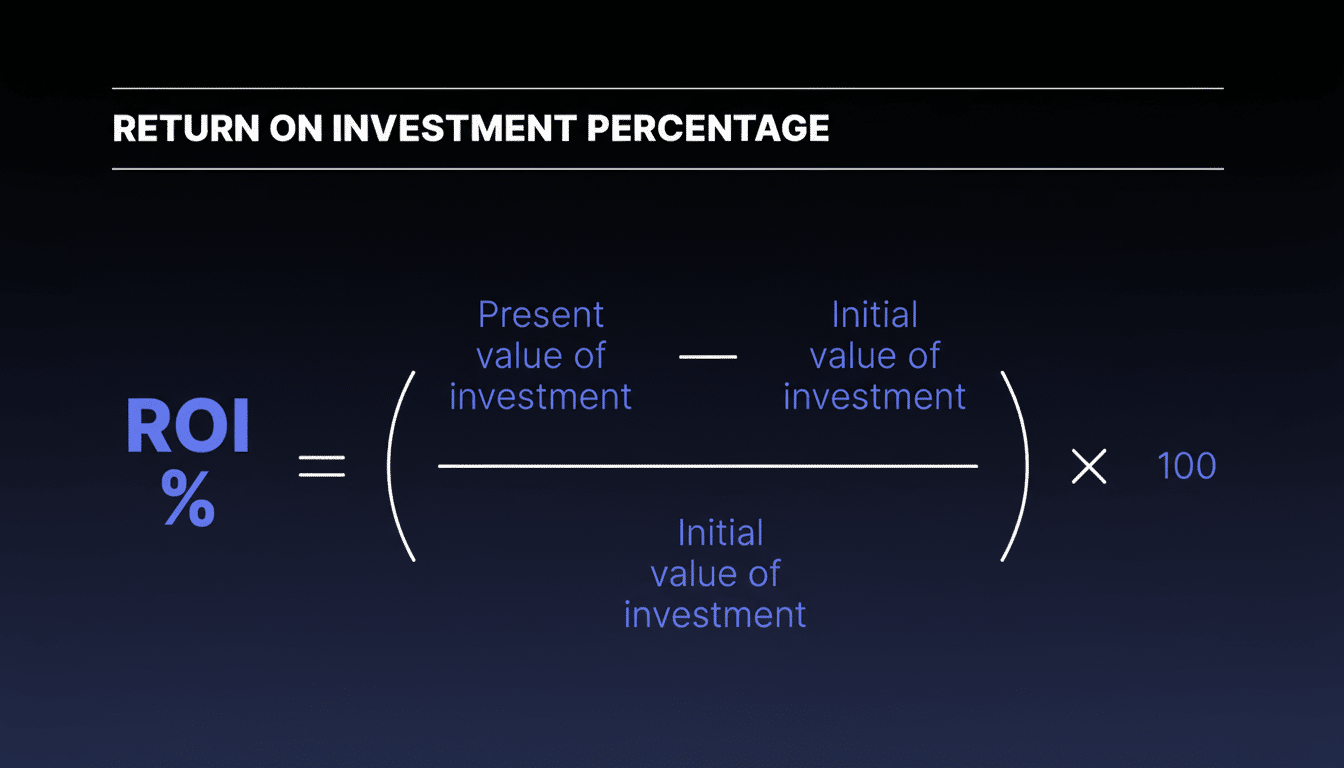OpenAI’s most recent acqui-hire is another sign of the organization’s stark turn in strategy away from “general” AI to more intimate consumer versions. The company also acquired Roi, a personal finance startup that had included two lawyers in its roster of employees but merged in, with only its CEO, Vishwajith, moving to OpenAI — another increasingly typical AI deal-making pattern. The timing of the move is also interesting given Context.ai’s recent acqui-hire, as well as deals involving Crossing Minds and Alex — and it’s a sign that OpenAI is looking for street cred beyond just another generic assistant or software that feels custom-made, adaptive, or habit-forming.
Roi, a company founded in New York last year and backed by investors like the venture firms Spark Capital and Gradient Ventures as well as the investment firm Spacecadet Ventures, has developed an AI-driven app that takes a person’s financial footprint — including stocks, crypto, DeFi (decentralized finance), real estate, and even NFTs (non-fungible tokens) — and turns it into a perpetual “you” wrapped up in an app. Roi has received around $3.6 million in total funding from investors, according to PitchBook data, a modest but enlightening bet on a team that revolved around personalization from the jump.
- Personalization is the AI battleground for consumers
- What Roi adds to OpenAI’s consumer stack and roadmap
- The business logic of hyper-personal AI for consumers
- Competition is racing to own your taste across platforms
- Trust, data, and the boundaries of personalization in AI
- What to watch next as OpenAI deepens consumer personalization

Personalization is the AI battleground for consumers
OpenAI’s consumer roadmap is increasingly about “personalized experiences” — recommendations, coaching, shopping, and content that are tied to individual tastes and context. Industry data backs that push: McKinsey says impactful personalization can result in 10% to 15% revenue uplift and enhanced customer engagement and retention, while Twilio Segment’s State of Personalization research says most consumers now want personalized experiences from digital services.
Roi’s philosophy fits. The app didn’t just answer questions about finance; it inquired about how users liked to be spoken to and adapted key things such as tone, risk framing, and what sorts of actions were promoted. In one example the company provided, the AI served up a typically blunt Gen Z-style portfolio update — full of jargon and humor aimed at keeping listeners’ attention. The reason is that AI — and how you relate to it — becomes increasingly sticky once an AI speaks your language and shares your intentions.
What Roi adds to OpenAI’s consumer stack and roadmap
It’s unclear how much of Roi’s technology will transfer over, but talent and playbook matter. Finance requires strong personalization: you need good data aggregation, and you have to build models for preferences and guardrails — things that translate very well into general consumer use cases like news summarization, shopping, entertainment, and personal organization. Roi’s CEO also brings growth DNA from Airbnb, one of tech’s poster children for small product changes moving large revenue needles, which is the kind of thinking consumer AI companies adore.
OpenAI has been building out its consumer applications team, which is led by former Instacart executive Fidji Simo, and adding features that suggest a tighter loop between what people intend to do using the company’s software and what that software takes them toward. Veerathai Santiprabhob called the thesis an algorithm that could work like a “life management” agent: an AI layer that understands your preferences, takes care of tasks, and acts as a nudging assistant, helping you achieve goals — without feeling too much like enterprise software or a one-size-fits-all chatbot.
The business logic of hyper-personal AI for consumers
Subscription, commerce, and premium add-ons make personalized consumer apps a great way to monetize. For OpenAI, which must bear heavy compute to train and run cutting-edge models, consumer revenue at a higher margin provides a strategic hedge against pure API economics. Analysts at places like Morgan Stanley and SemiAnalysis have observed that inference at scale could potentially be in the billions annually, which means that durable consumer engagement, not just sign-ups, is the real prize.

Instant purchasing within assistants, creator-style content personalization, habit-forming daily briefs — these are all vectors to grow that engagement. A finance-obsessed team that’s been optimized for conversion and retention KPIs can turn a cool demo into a daily utility.
Competition is racing to own your taste across platforms
The personalization race is crowded. Google is integrating more personalized help into Search and Android. Apple is doubling down on on-device intelligence and privacy-focused personalization. Meta is building AI companions inside WhatsApp, Instagram, and Messenger. Microsoft’s Copilot system couples personal data graphs to productivity contexts. Each wants to be the agent for your day, not just a chatbot.
OpenAI’s counter is to double down on consumer-grade polish and breadth — media, shopping, news, planning — while preserving the underlying model advantages. If Roi’s approach enables OpenAI to best others in tone control, risk profiling, and decision support, those can all stack across products.
Trust, data, and the boundaries of personalization in AI
After all, personalization is only as good as the data users are willing to share. That could include more explicit controls over memory, transparent use of personal information, and the tools to do as much processing on-device as possible. Regulators are observing: the FTC is still sounding alarms about dark patterns in AI-led interfaces, the CFPB has been digging into automated finance support, and Europe’s proposed AI Act further raises the compliance game on high-risk uses.
The very best consumer AI is likely to combine explicit settings (I prefer that you use this tone, or pursue these goals, or abide by these constraints) with implicit learning (based on which responses seem to me most successful) and easily findable off switches. Roi’s user-led pitch configuration is a clue to how you can make this feel empowering rather than creepy.
What to watch next as OpenAI deepens consumer personalization
Expect OpenAI to weave personalization throughout its own flagship consumer surfaces — from news-style briefings to creator tools and integrated checkout. More specialized acqui-hires could be in store, particularly teams with established chops in data integration, recommendation systems, and growth design. If the company could marry that to a secure, trustworthy-looking data posture along with experiences that are genuinely adaptive, it could set the stage for the next era of consumer AI: one not as a search replacement but that learns you.

